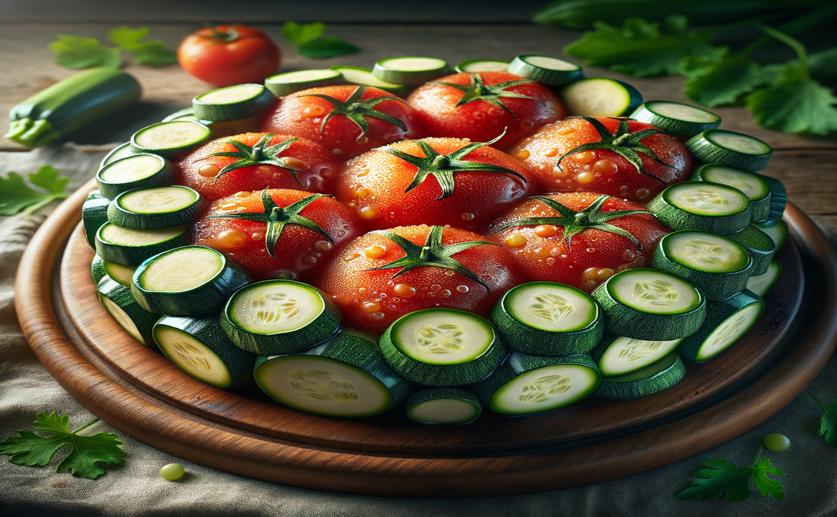
Extending Tomato Freshness with Zucchini-Based Edible Coating
Greg Howard
8th June, 2024

Image Source: Natural Science News, 2024
Key Findings
- Chandigarh University found that zucchini-derived pectin can extend the shelf life of tomatoes
- Pectin showed strong antimicrobial activity against common bacteria and fungi
- Tomatoes coated with a 5% pectin solution had minimal weight loss and better nutrient retention, extending their shelf life to 11 days
References
Main Study
1) As assessment of shelf life increasing competence of pectin (Zucchini) based edible coating on tomatoes.
Published 5th June, 2024
https://doi.org/10.1016/j.envres.2024.119368
Related Studies
2) Cholesterol-lowering properties of different pectin types in mildly hyper-cholesterolemic men and women.
3) Composite edible coatings from commercial pectin, corn flour and beetroot powder minimize post-harvest decay, reduces ripening and improves sensory liking of tomatoes.
4) Green synthesis of Zirconium nanoparticles using Punica granatum (pomegranate) peel extract and their antimicrobial and antioxidant potency.



 30th May, 2024 | Greg Howard
30th May, 2024 | Greg Howard